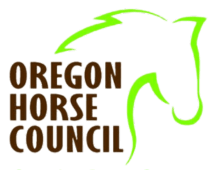If you are thinking about leasing a horse, consider the following benefits and risks carefully. You can follow Steps to Take in Leasing a Horse to help minimize the risks and maximize the benefits.
Benefits:
Horse Privileges Without Horse Ownership
Horse ownership isn’t for everyone. Perhaps you enjoy riding but don’t have enough time and/or money to make horse ownership realistic right now. Maybe you travel a lot but still like to ride regularly. Depending on the terms of your lease agreement, leasing a horse can provide you with a horse to ride without all the hassles and expense of ownership.
A New Horse Buddy
Tired of your spouse changing the subject when you talk about horses? Depending on your relationship with the horse’s owner, you might have a companion to go with you to horse events and take pride in the horse’s progress. Most horse owners never tire of hearing about their horse’s finer points!
Risks:
Injury to You, the Horse or Others
Even if you have years of experience, treat the horse with lots of TLC and follow the owner’s instructions to the letter, accidents will probably happen. To help minimize these types of risks, make sure your lease agreement spells out specific care the horse requires and who will be responsible if anything happens to you, the horse or anyone else. If you have liability under the agreement, you might want to purchase an insurance policy for the horse. Whether the owner contributes to the cost of maintaining the insurance policy is a matter of agreement between you and the owner.
No Ownership Privileges
Regardless of how much you might like the horse, you are not his owner and, therefore, you might have little control over his care. Depending on the terms of your lease agreement, you might have to put up with last-minute schedule changes and other inconveniences, and you might not be able to do everything you’d like with the horse (e.g., trailer out to distant parks, go on trails or take him to shows). You must respect all of the owner’s wishes and follow all her instructions, regardless of whether they make sense to you.
The Lease Might Not Ultimately Work Out
Even if you follow all the Steps to Take in Leasing a Horse, your lease arrangement might not end up being long term. Maybe the owner has to move away from the area, or maybe he suddenly has more time to ride or wants to send the horse away to a trainer. Maybe you decide to buy your own horse. In any case, your lease agreement should cover all the circumstances under which either party can terminate the agreement and how the termination should work.

Rachel Kosmal McCart is a lifelong horsewoman and the founder of Equine Legal Solutions, PC, an equine law firm based in the Portland, Oregon area. Rachel is a member of the New York, California, Oregon and Washington State bars and is admitted to practice before the U.S. District Court for the District of Oregon and the U.S. District Court for the Central District of California. Rachel currently competes in three-day eventing.

